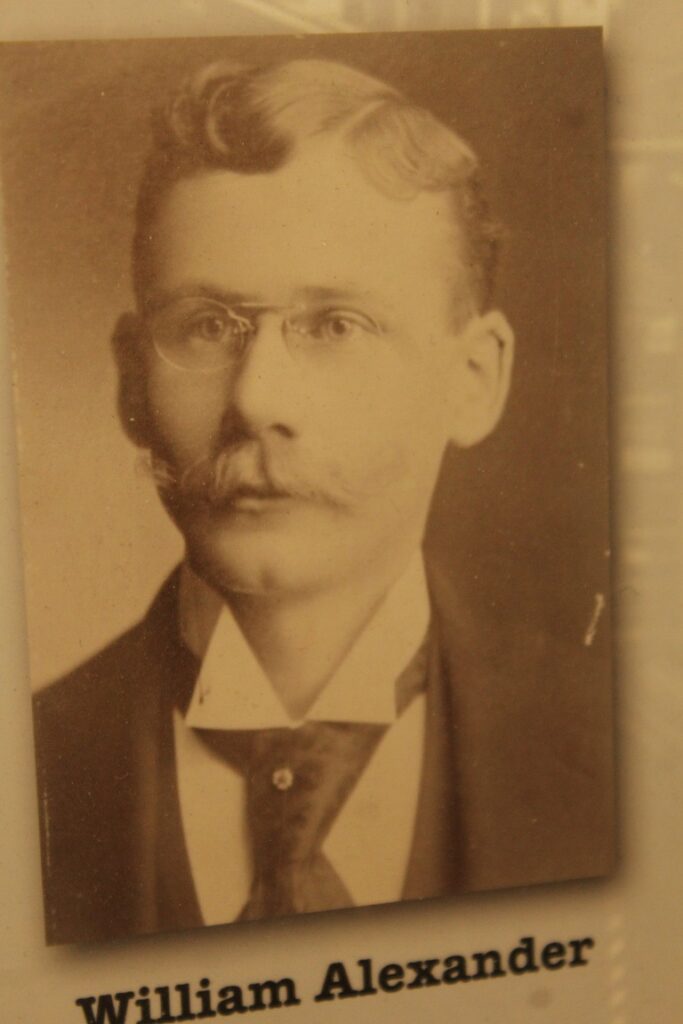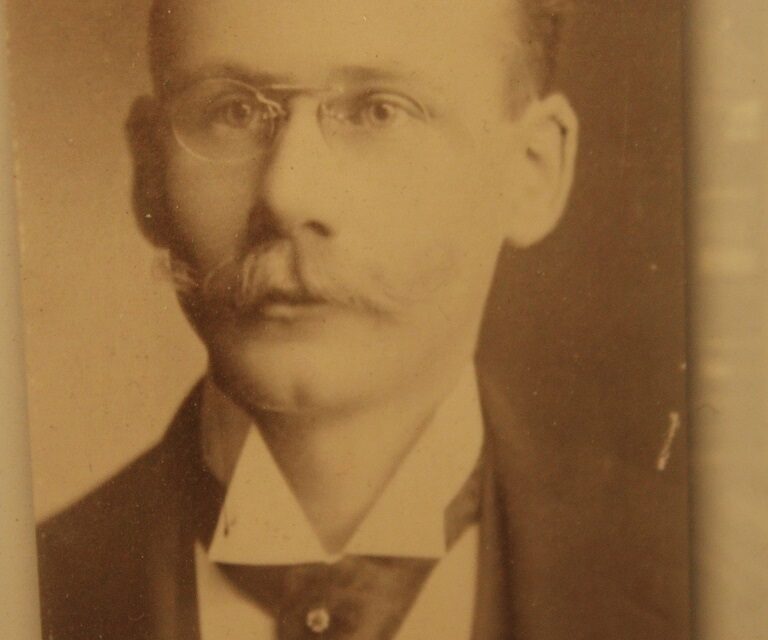
William C. Alexander got less recognition than his wife, Harriet, for whom the Salida Airport (Harriet Alexander Airfield) was named, but he was equally involved in his community.
Born in La Grange, Texas on Dec. 23, 1871, he learned watch making and was associated with noted jewelers in Texas before coming to Salida in 1901 to open a jewelry store at 142-144 F St. (Possibly 142-144 North F Street.) He was also a pharmacists ad a graduate optometrist and he examined eyes and fitted glasses there.
Salida was a booming railroad and mining town and pocket watches were a necessity to railroad men and a common accessory for men at that time.
When Harriet Wright moved to Salida he hired the young lady to work in his store and they were married on July 2, 1907.
William was mayor of Salida, from 1913 to 1917 and 1927 to 1929. One issue he faced was in 1914 when an effort was made to close Salida’s red light district, mainly on Sackett Avenue or what was called Front Street then.
“While I knew the traffic was unlawful,” William said, “ I realized it existed here since the town was established, during which time the city had regulated and, in fact, licensed, the business under the guise of monthly fines. I also knew former and present officials as well as a great many citizens felt segregation was the best method of handling the vice problem. In view of this, I declined to take action. I felt, however, that those who were opposed to the official recognition given to the traffic were entitled to consideration.”
Closure of the “parlor houses” was temporary and did not become permanent until 1950.
He was a member of the York Rite Masons, El Jebel Temple of the Shrine, grand master of the Grand Chapter of the Order of Eastern Star (OES) for Colorado, patron of Topaz Chapter OES and worshipful master of the Salida Masonic Lodge.
He was twice president of the Salida Chamber of Commerce, chairman of the Chaffee County Republican Party and played a major role in the Republican Party for the state.
He was appointed by Governor Ralph Carr to the State Board of Pharmacists and was once president of the Colorado Pharmaceutical Association.
He attended Episcopal Church of the Ascension and was a popular speaker and toastmaster
Genealogy was another of his interests, probably prompted by his heritage. His father was a civil engineer and surveyed much of the state of Texas and William’s ancestors fought in the Texas Revolution and the Civil War. He was a member of state historical societies of Colorado, Iowa, Missouri, Illinois and Texas, Sons of the American Revolution and Sons of the Republic of Texas.
He was attending a pharmaceutical convention in Denver in October of 1941 when he died at age 70 of a heart attack. He is buried in Fairview Cemetery.





